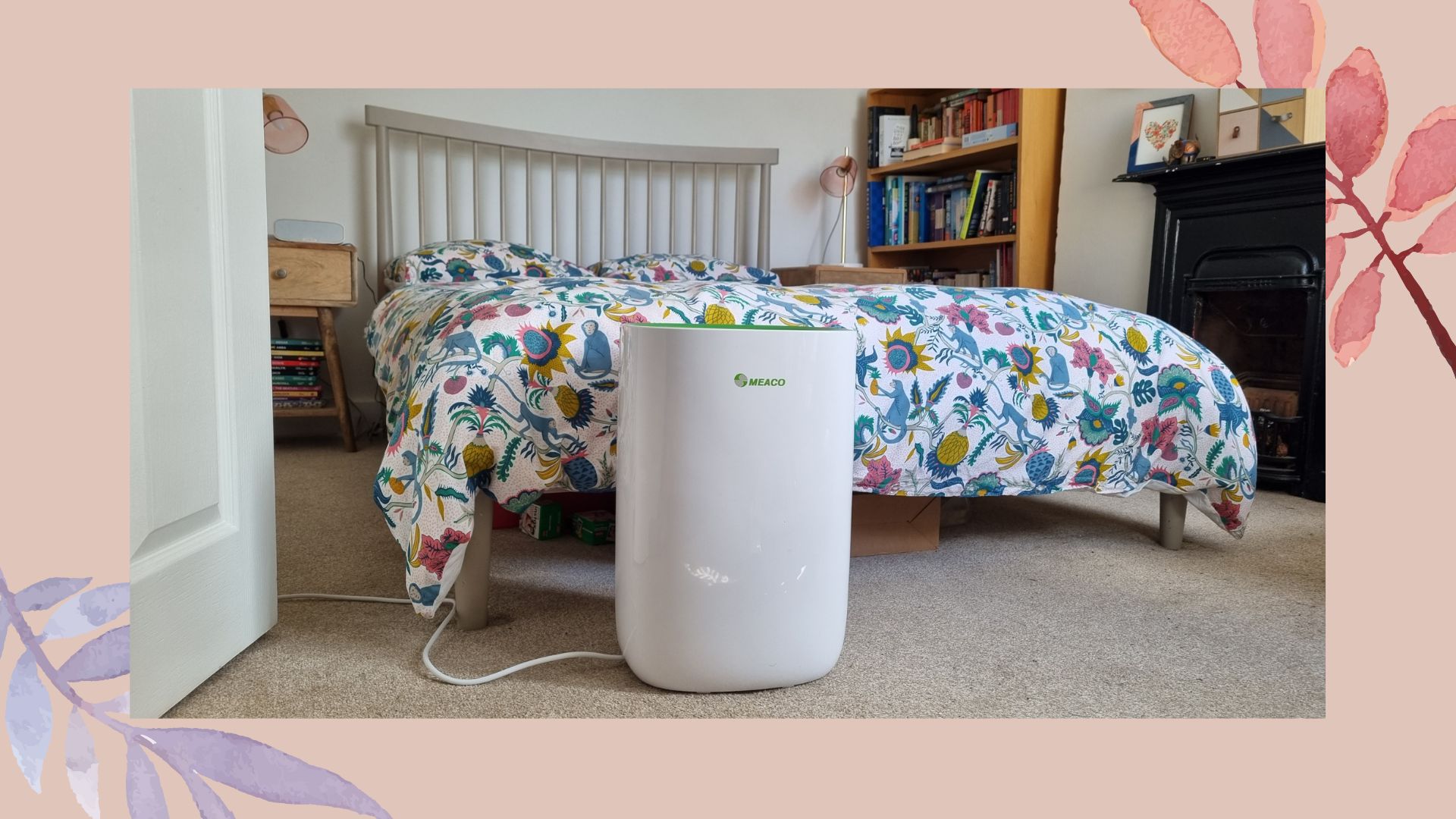
While they always seem worse in winter, damp conditions can affect our homes and our well-being 365 days a year. And having a dehumidifier to tackle them can make a huge difference.
I was first switched on to the benefits of a dehumidifier two decades ago while renting a one-bedroom flat in London. With a constant stream of wet washing to dry, condensation forever dripping down the windows, and black mould beginning to form in corners of rooms, I knew I had to take action or lose my deposit. So I invested in one of the best dehumidifiers on the market and never looked back.
Having given my long-serving Delonghi model to tenants of a flat I rent out, I now needed a replacement as I'd noticed small patches of black mould in the corner of my Victorian home's living room and master bedroom. So I went on to research what you need to know before buying a dehumidifier for different rooms, to see which one I liked the best. I was able to review three models side by side for over a month – including Meaco's MeacoDry ABC 12L dehumidifier. This is my verdict.
MeacoDry ABC 12L Specifications
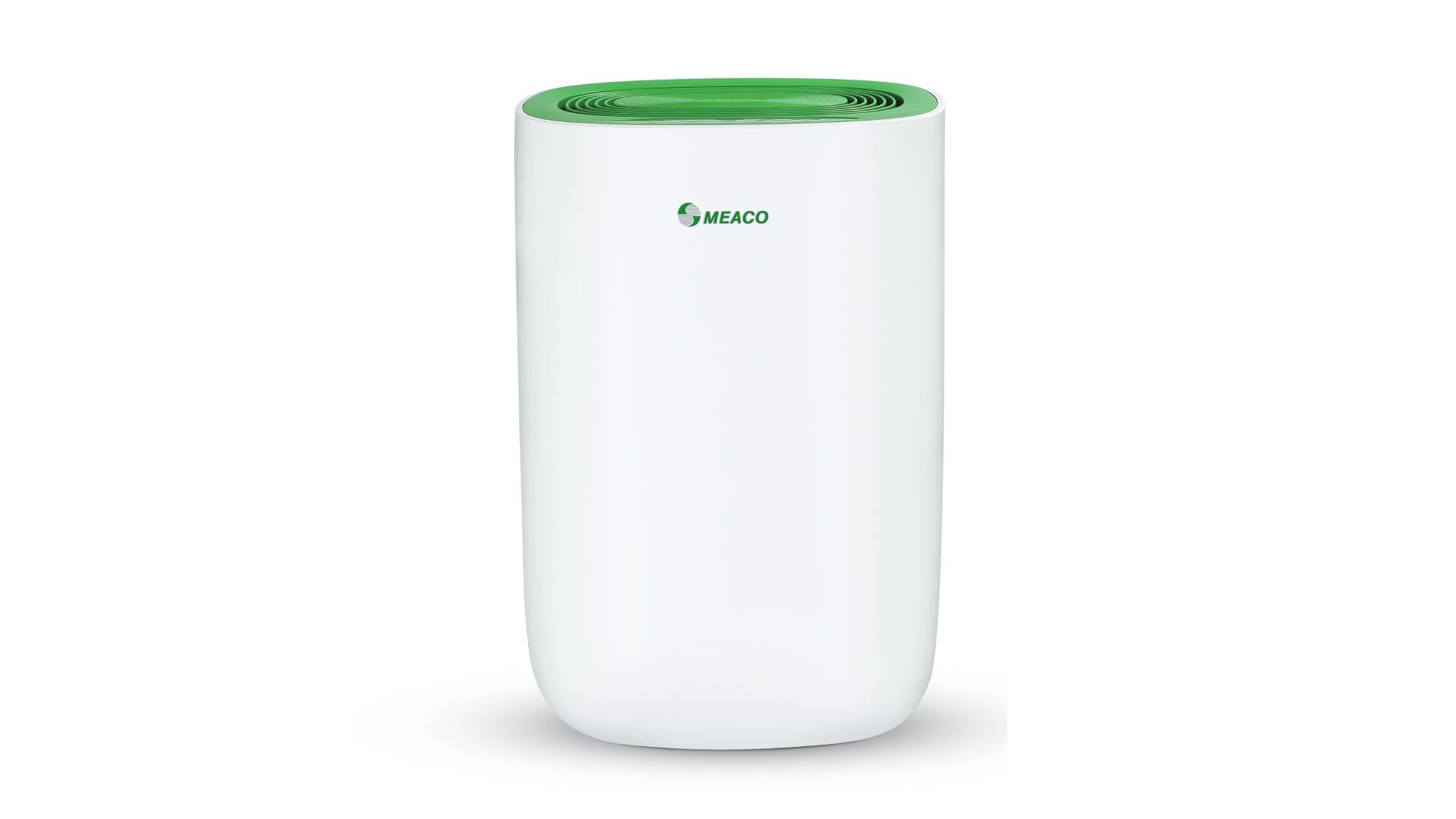
- RRP: £169.00
- Tank Capacity: 2.6 litres
- Maximum extraction potential: 12 litres per day
- Size: 30 cm × 25 cm × 46.3cm
- Weight: 10.4kg
First impressions
My first impression of the MeacoDry ABC is that this is one hefty bit of kit. It took two of us to prise it out of its polystyrene supports and onto the countertop. The model we tested has a very 'practical' green top, which does mean you won't accidentally trip over it. But it's possibly not as elegant as other options – such as the white and grey that are also available.
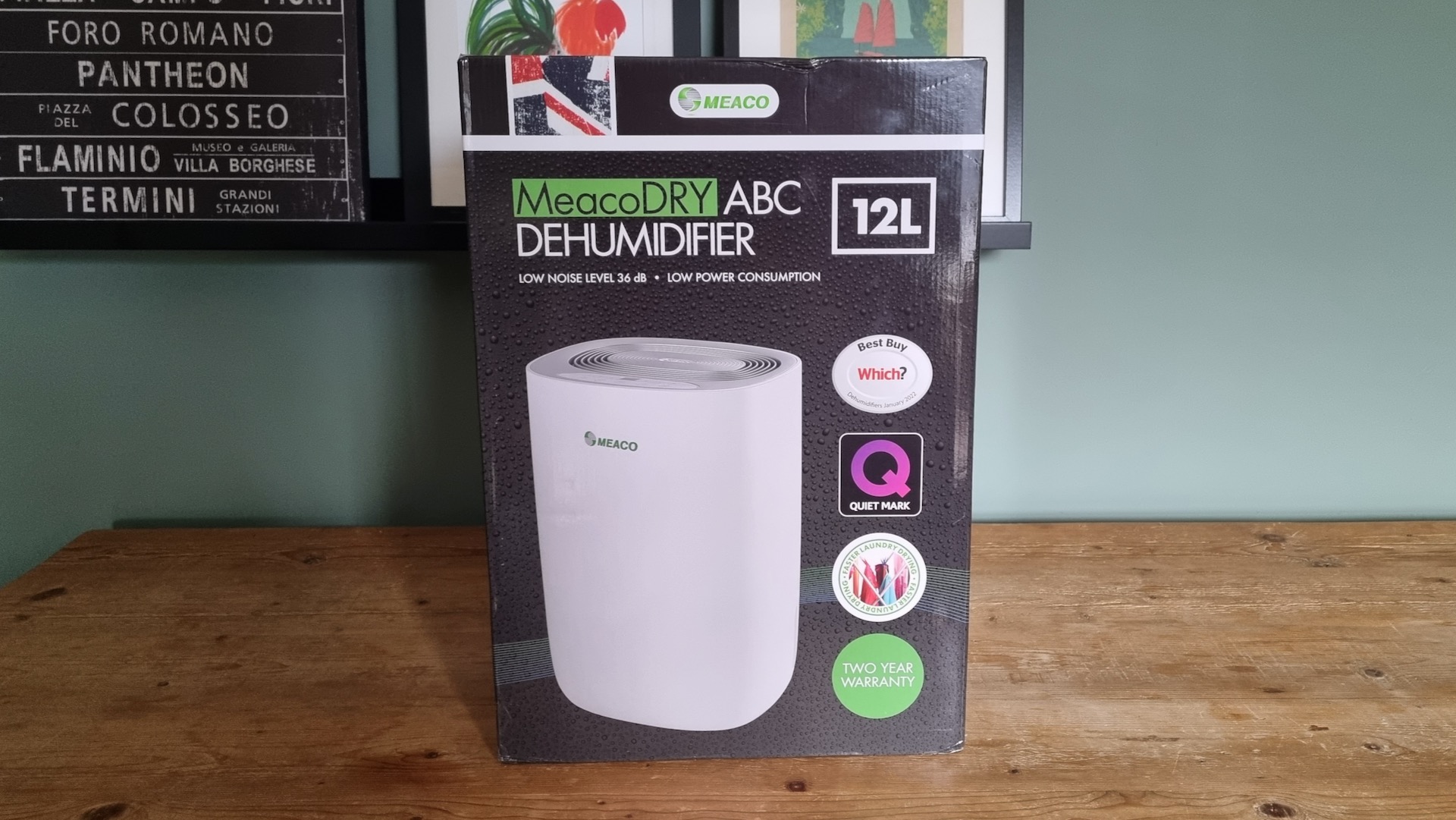
How I tested it
I tested the MeacoDry alongside two other dehumidifiers – the EcoAir DC12 ML3 12L compressor dehumidifier and the DeLonghi Tasciugo AriaDry Multi 16L dehumidifier.
As I mentioned, I'm a long-time aficionado of this particular appliance – weighing up all the reasons you should buy a dehumidifier, depending on your needs. This means I had a good idea of performance metrics that I could use as a fair comparison. I gave each unit marks out of five for the following criteria:
- Capacity and water tank: was it big enough; was it easy to remove/replace; was it easy to empty; was it easy to clean, etc.
- Ease of use: How easy was it to turn the dehumidifier on and off; find the right settings; read and operate the control panel; use functions such as timers, etc.
- Design and mobility: was the design attractive; was the dehumidifier supplied with castors; how good was the handle; was it heavy both empty and full of water, etc?
- Noise: was the unit loud?
- Effectiveness at drying washing: To test the capability of this dehumidifier for drying clothes I washed 7kg loads of bedding and clothing, weighing it when it was wet out of the machine, then again after a drying time of six hours to see how much water had been removed, also paying attention to the ambient room temperature. I always used the same 'drying room' – my dining room. I did this multiple times using different wash loads of fabrics, including cotton, denim and synthetics.
- Effectiveness of reducing humidity and condensation: I observed how well the dehumidifier was able to reduce mould and condensation in a room over one month.
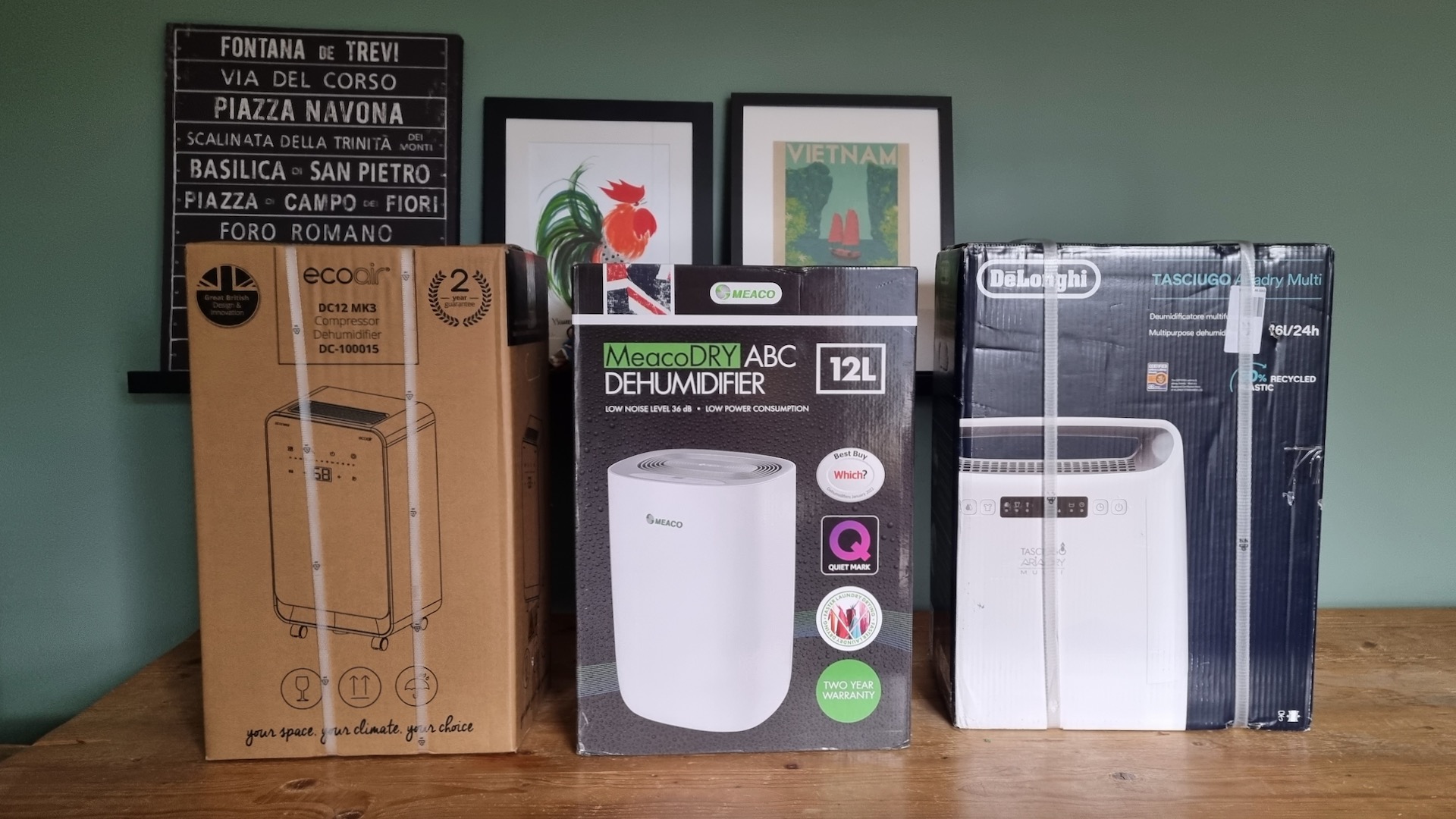
How well does the MeacoDry ABC 12L dehumidifier perform?
Capacity and water tank
The Meaco ABC we tested can remove up to 12 litres of water from the air in 24 hours. I wasn't able to prove this through testing as my house simply wasn't humid enough! It has a water tank capacity of 2.4ltrs, which makes it the largest tank of the models I tested (2.1ltrs for the Delonghi, 2ltrs for the EcoAir).
It also offers continuous drainage with an outlet where a hose can be attached. Unlike the other models I tested, the drainage hose wasn't supplied in the box and must be purchased separately. This wasn't an issue for me as I have owned several dehumidifiers and have never once needed to use this function. However, if you have excessive humidity, it's worth knowing.
One of my favourite features of the MeacoDry is its water tank. The only one of the three models I tested that had a lid, it's by far the easiest to empty, as water can't slosh out as the tank is pulled out and carried to the sink.
You don't need to remove the lid to empty the tank. The water can be poured from a small hole at the top. This makes it easy to direct into another container, such as a watering can, so you can use it to water houseplants or to fill your steam iron (both of which I did so that the water wasn't wasted). However the lid is removable should you want to focus on the tank when cleaning the dehumidifier, which you can do with relative ease.
WARNING: Meaco advises that the extracted water should never be used on edible plants such as tomatoes, or as drinking water.
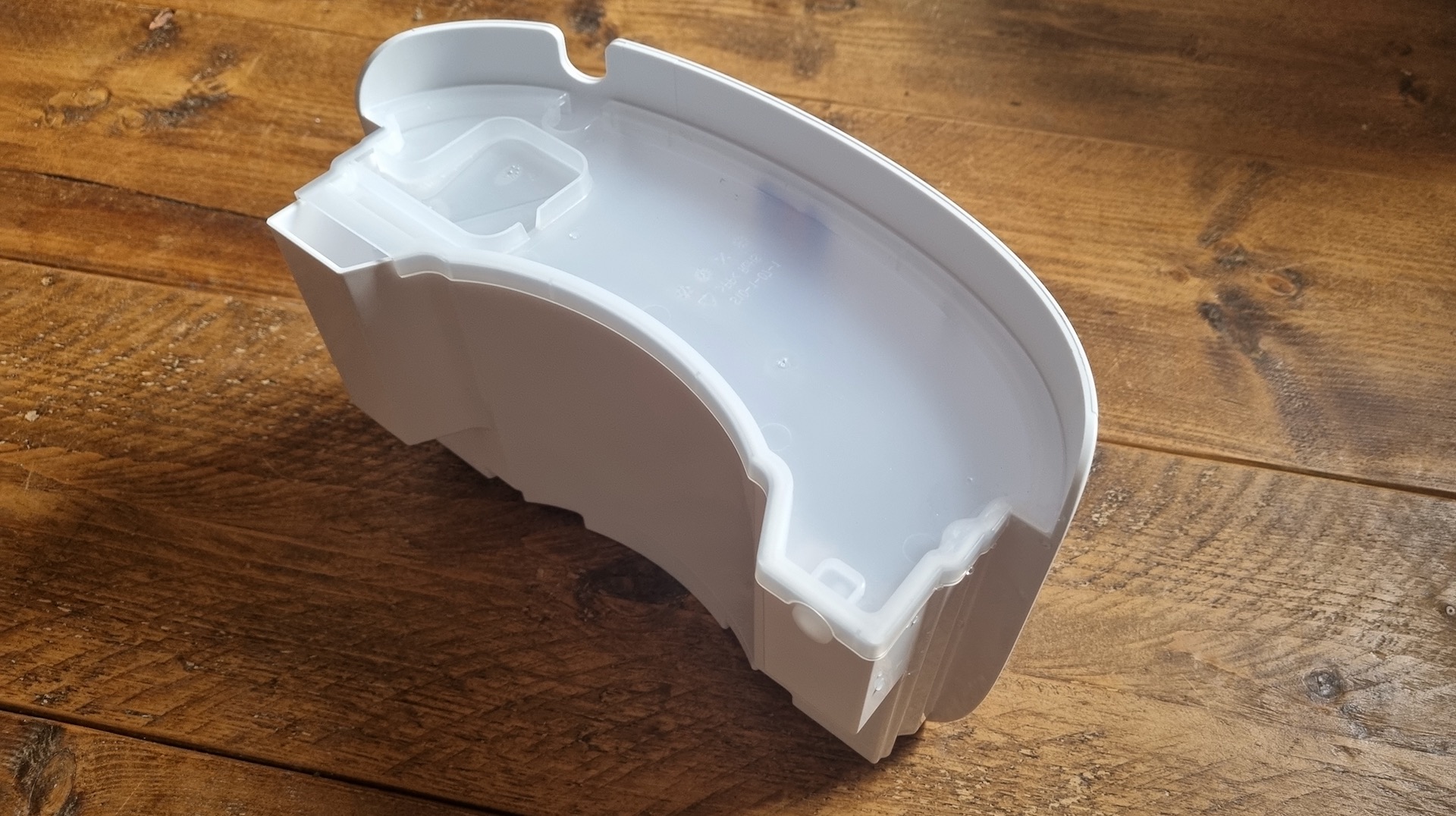
Ease of use
The control panel on the Meaco is relatively self-explanatory. There are just five buttons.
The one printed with a shirt is, logically laundry mode. Press this once and the dehumidifier will switch to a high fan speed and run for exactly six hours to dry laundry.
The second button from the left is a fan button, which lets you switch between two fan speeds, high and low. Hold this down for five seconds and it will activate a child lock, so no one can tamper with your settings accidentally.
The central button is the humidistat button. Keep pressing this to select the optimal humidity for the space, or to put the dehumidifier into Continuous (CO) Mode. The latter will set the appliance to run continuously and not stop. As you scroll, you'll see CO-30-35-40-45- 50-55-60-65-70-75-80 appear on the small LED screen.
The next button is a timer. Here you can set the dehumidifier to run for between 1 and 24 hours and then switch itself off. Or you can press and hold it down to put the appliance into sleep mode. This will lower the fan speed and turn off any lights so as not to disturb you. More on that later...
Finally, we have the on/off button, which is self-explanatory.
I found the buttons responsive and very well-designed. They give a little click as you press them and the corresponding indicator lights are clear, although I did find the icons very small and hard to see, especially those above the indicator lights, and I don't need reading glasses! My mother had to wear glasses and get very close to make them out.
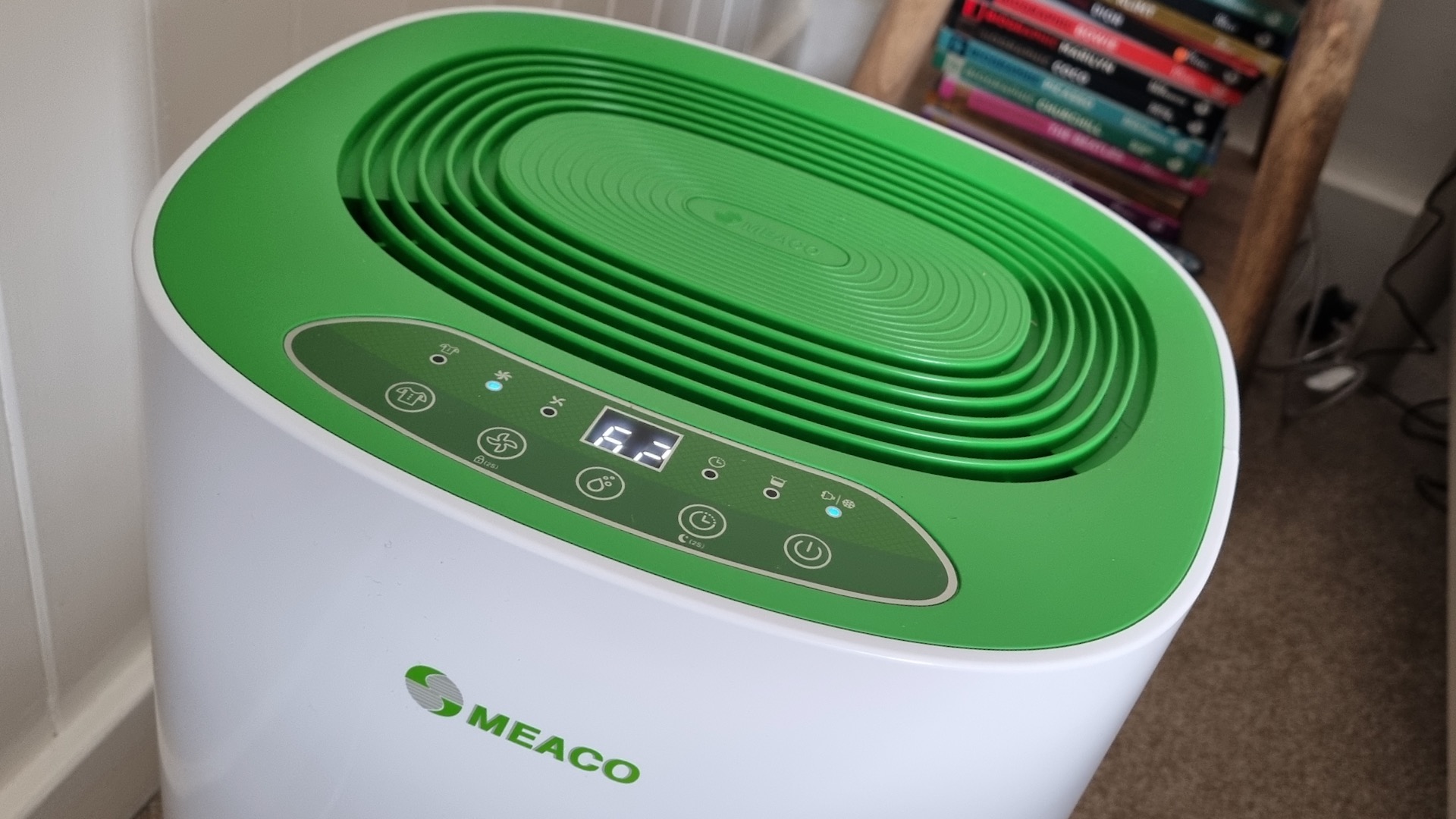
Design and mobility
Physically, this is only slightly smaller than the Delonghi dehumidifier that we tested and has a larger water tank. However, unlike the Delonghi, this model doesn't come with castors – you have to buy them separately. Given the size of the unit, this was a slight issue as you have to be reasonably strong to do so. It's not a unit you'd want to lug from room to room frequently.
The handle is OK, but you do really need to curl your fingers into the machine to grip it, and as it's moulded into one side of the dehumidifier, it's not that well balanced.
Air is pumped out from the top of the machine, and this can make it quite draughty. It's not warm air (the EcoAir felt much warmer) so it can make a room feel chilly. When we had it on in our living room in early March, we were practically shivering!
One thing this model really has in its favour, however, is the length of the power cord. At 2 metres, it was the longest of all the dehumidifiers we tested, which made positioning it a room – and with the suggested clearance of more than 20cm of space on all sides – easy to achieve. This lead makes this a safe solution to act as the best dehumidifier for a bathroom because it can be positioned by the door, nowhere near the water sources.
Noise
Next, what I consider to be the biggest downside of the MeacoDry ABC – it makes quite a bit of noise, despite being certified by Quiet Mark. It was the noisiest of the three dehumidifiers I tested side by side.
I took a decibel reading in a quiet bedroom where the ambient noise level was 34dB. On a low fan setting, the dehumidifier took that reading up to 50dB, and on a high fan setting, the reading settled at 59dB. To put this into context, on the lower setting, the noise was at a comparable level to my dishwasher or a low conversation.
At night it is possible to put the dehumidifier into a 'sleep mode', where all the lights go out and the fan speed is reduced to low (around 50dB). In all honesty, only the heaviest of sleepers would be able to drift off against this whirring. The first time I used this mode, every 30 minutes, the unit kicked into a high fan speed for 10 minutes, before reducing again. This happened through the night but hasn't happened since.
In conclusion, the MeacoDry ABC is relatively loud and probably not suitable to be used as a bedroom dehumidifier, or in a living room while you're watching TV. However, to be fair to Meaco, their instructions do suggest 'positioning the dehumidifier in a central position within your home, for example, the landing or hallway', rather than the bedroom unless this a particular 'problem area'.
As a hallway or laundry room dehumidifier, I'd still highly recommend it. This leads us nicely to...
Effectiveness at drying laundry
This is where The MeacoDry really lives up to its promise. We were blown away at how much quicker our washing dried with this dehumidifier in the room. Our airers live in the dining room of our home, which measures 13 sq m. In this space, in the centre of the house, it typically takes between 14 and 36 hours for washing to become iron-dry, depending on the fabric.
However, when we put the MeacoDry on laundry mode, thinner cotton items like pillowcases and summer dresses were ironed after six hours. Even heavy jeans were dry within a day, rather than closer to two. After six hours, typically 1.25ltrs of water had been collected from 7kg of mainly cotton laundry.
Having the laundry mode also gave us peace of mind, as knowing that the appliance would shut off after six hours meant we didn't need to worry too much about having it on for too long after we left for work. It also enables those who have access to cheaper nighttime electricity tariffs to let the appliance run but not into peak times, as long as you get your timings right.
Granted, it's not as good as a smart dehumidifier that you can turn on and off with an app, but it's the next best thing, alongside the timer function.
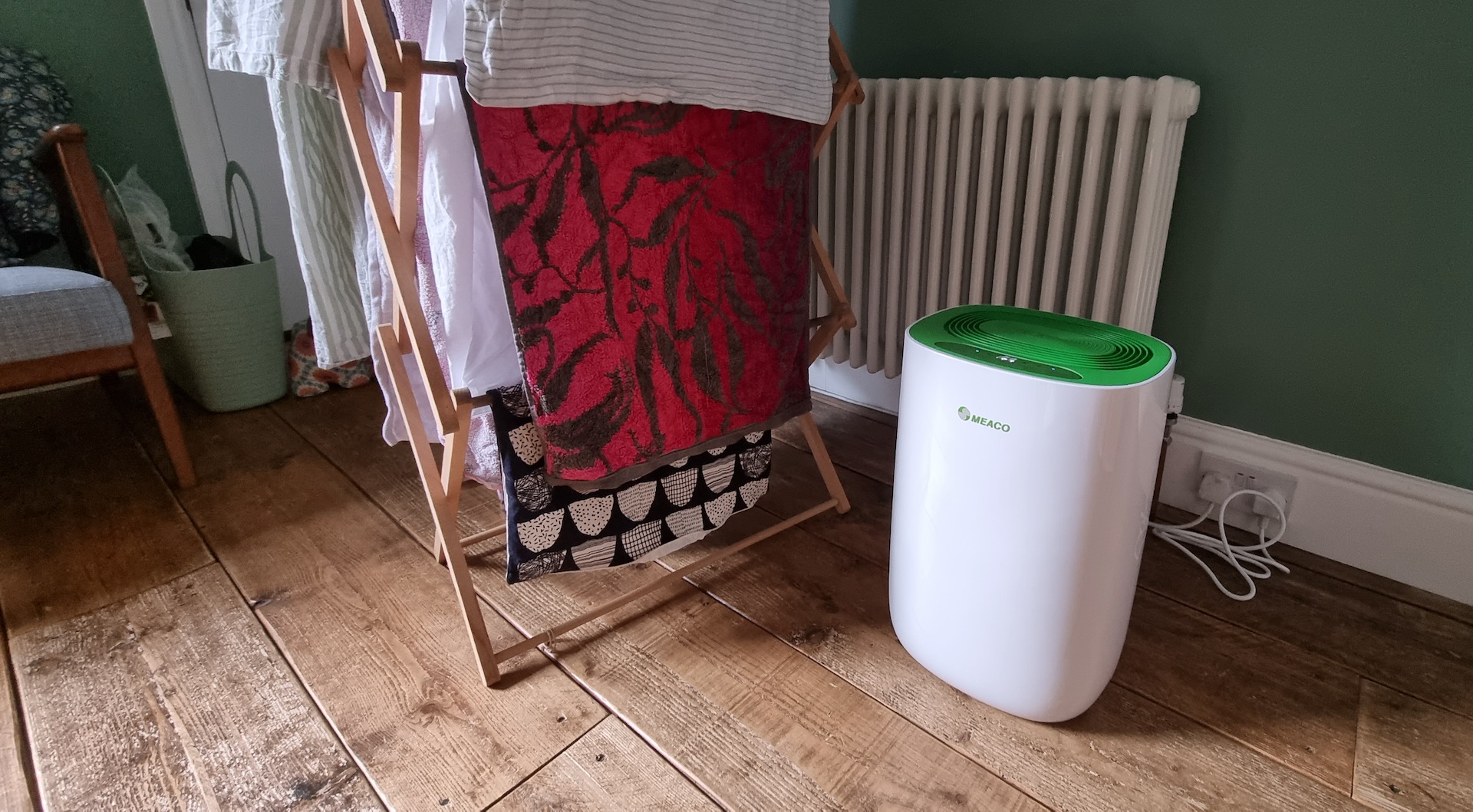
Effectiveness of reducing humidity and condensation
Measuring its ability to reduce humidity in the house was a little trickier, but initial humidity readings in our worst offending room, the living room, were around 70%. The bedrooms were significantly lower, at 60%. Within three weeks, readings in all three rooms were consistently at 55%, although we did move the unit around the house every few days to achieve this.
Condensation was banished from all rooms very quickly. After an hour, my most problematic room, the bathroom, was clear of condensation – even though the unit was positioned in the nearby hallway. And since having the dehumidifier, no black mould has formed on the walls.
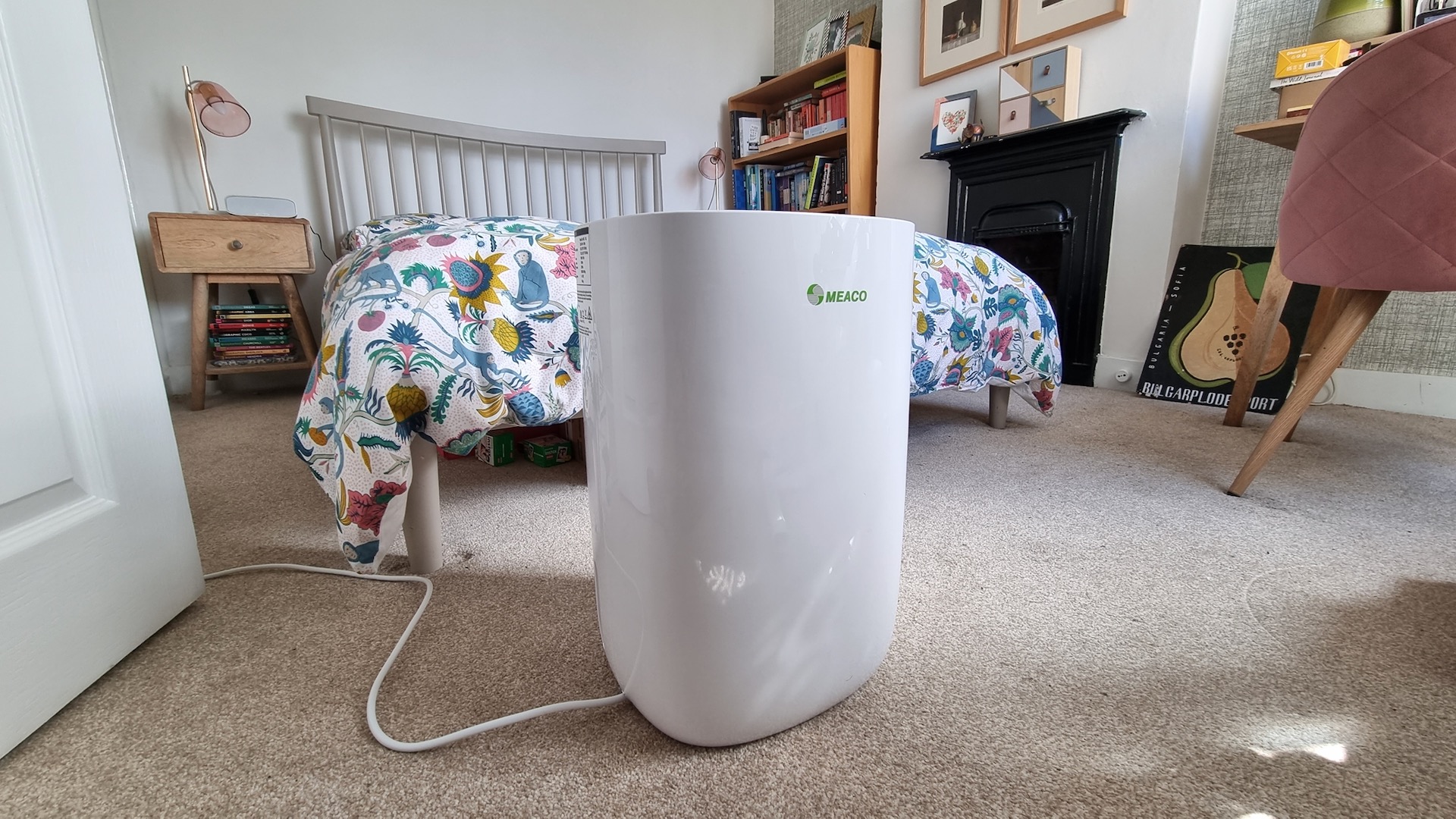
Who is the MeacoDry ABC 12L dehumidifier right for?
Chris Michael, managing director of Meaco says that a 12-litre humidifier like this one is 'best for houses/apartments up to two bedrooms with musty smells and regular or bad mould/condensation (70-100% humidity) OR three-bedroom homes with light mould/condensation (50-60% humidity).'
So, this is the ideal dehumidifier to reduce humidity in a medium-sized house, but not a large four or five-bedroom home, or a three-bed with severe condensation or damp. In these cases, you'll need to upgrade to a larger capacity. Note the capacity/amount given in litres of any dehumidifier is the amount of water it can remove from the air in 24 hours – NOT the capacity of the water tank.
Due to the noise it makes, I'd also say this isn't very suitable for use within a bedroom. Although it can still be effective when operating from a landing or hallway.
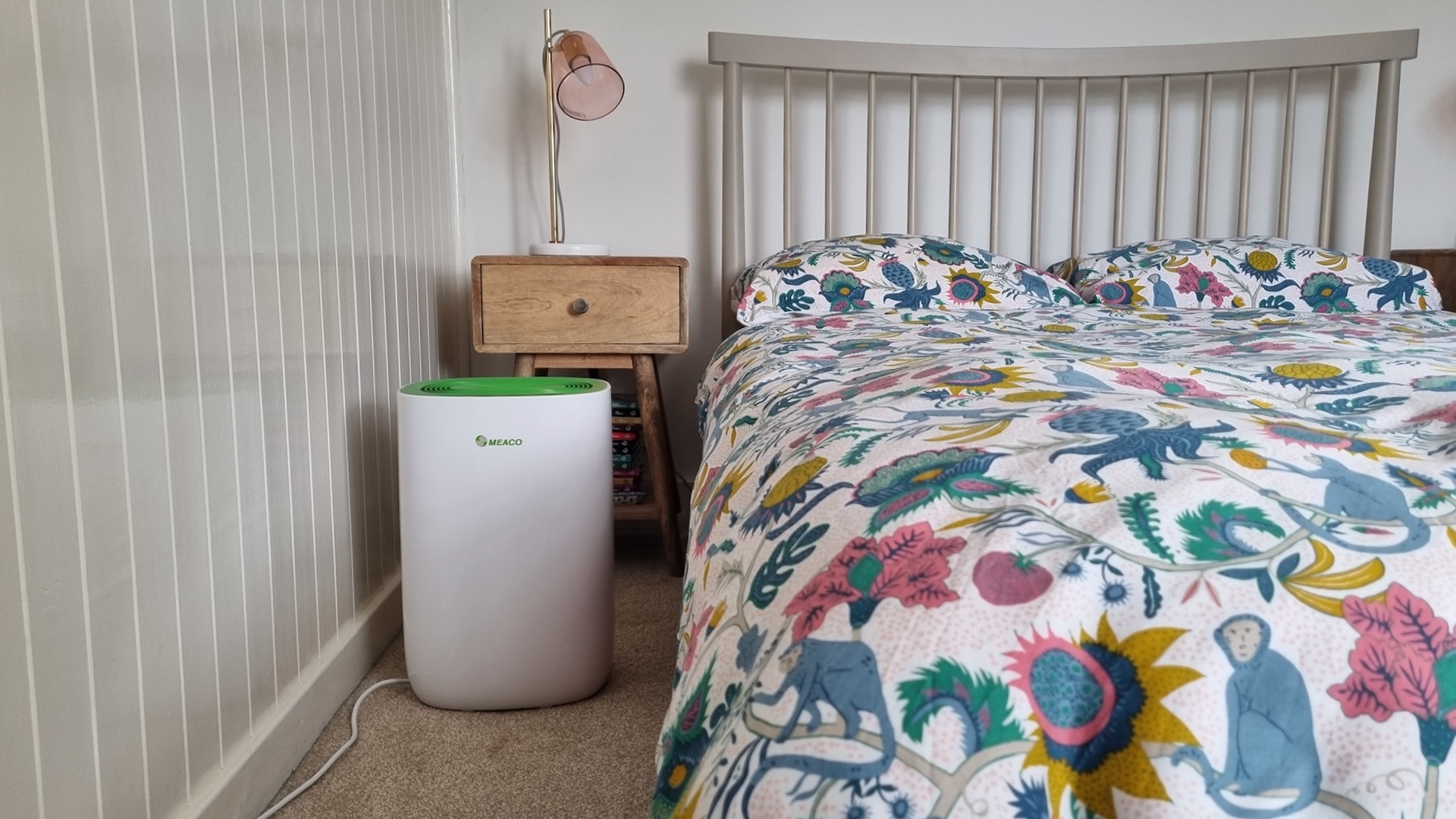
Should you buy the MeacoDry ABC 12L dehumidifier?
Having lived with this unit for a few months, I'd say it's the perfect size for my three-bedroom Victorian semi. The rooms suffer from light condensation in winter, and this completely disappeared within a week of using the MeacoDry ABC. While my living room damp issue hasn't totally cleared up, it has improved considerably, and no more black mould has formed on my bedroom walls.
The stand-out feature of this dehumidifier is its ability to slash indoor drying times on laundry. I was blown away by its performance in this regard. I also like that you can set your preferred target humidity between 30%rh and 80%rh, so you are in control of how much moisture is removed – handy if any of you have skin conditions, for example.
In conclusion, this is a well-priced, effective dehumidifier that's ideal for a two-to-three-bed house or apartment with moderate condensation and damp issues, and is wonderful at drying washing so great if you have a lot of large laundry piles each week and no tumble dryer. It's the better budget version for drying laundry compared to the Swan 20-litre Activair dehumidifier. It's not so suitable for larger households, or those who plan to use their dehumidifier in a bedroom.







